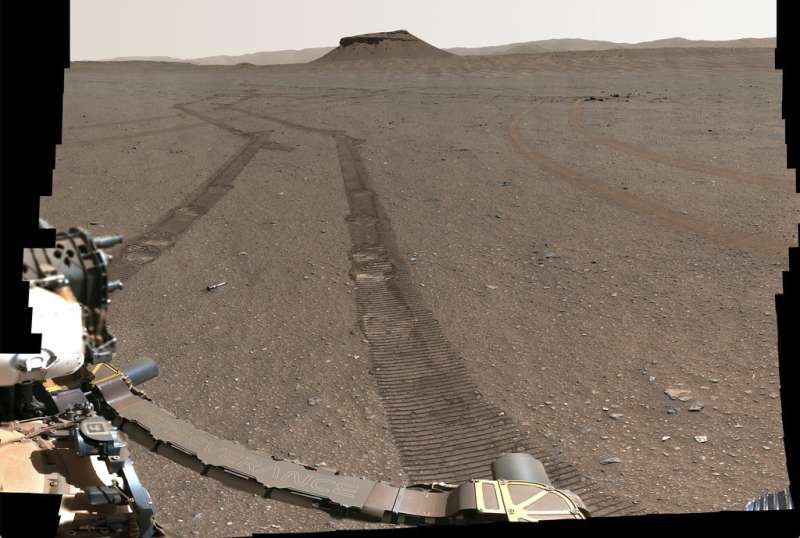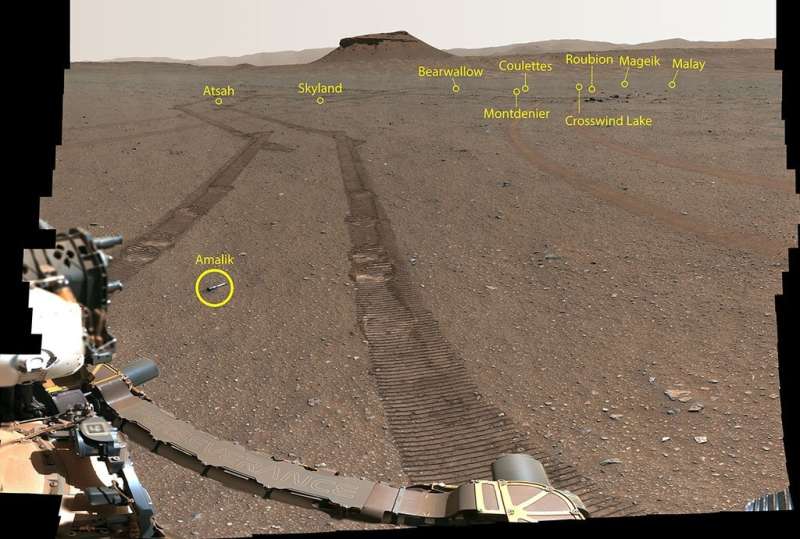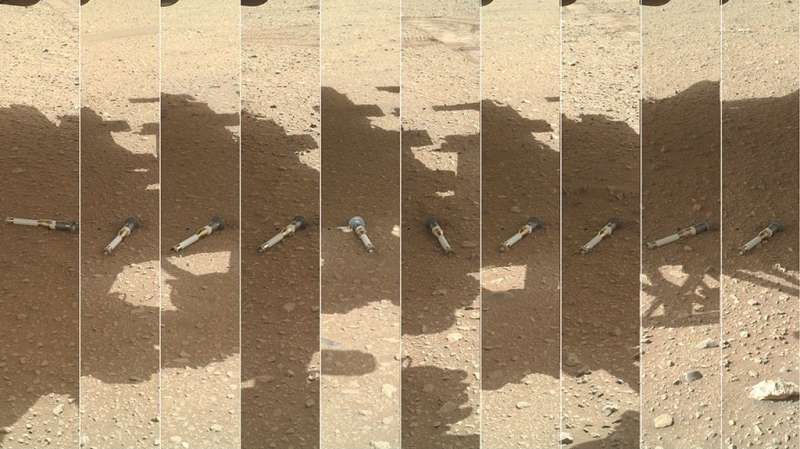NASA’s Perseverance rover captured this portrait of its recently completed sample depot using its Mastcam-Z camera on Jan. 31, 2023, the 693rd Martian day, or sol, of the mission. Containing 10 samples, the depot is a crucial milestone in the NASA-ESA Mars Sample Return campaign. Credit: NASA/JPL-Caltech/ASU/MSSS
Even space robots know what "pics or it didn't happen" means: NASA's Perseverance Mars rover provided a panorama of its recently completed sample depot—a big milestone for the mission and humanity's first collection of samples on another planet. The panorama, stitched together from 368 images that were sent to Earth, captures more than a month of careful placement and mapping of 10 titanium tubes.
Eight of those tubes are filled with rock and regolith (broken rock and dust), while one is an atmospheric sample and one is a "witness" tube. The rover photographed the depot using the Mastcam-Z camera on the top of its mast, or "head," on Jan. 31, 2023. The color has been adjusted to show the Martian surface approximately as it would look to the human eye.
An annotated version of the portrait captured by NASA’s Perseverance shows the location of the 10 sample tubes in the depot. The “Amalik” sample closest to the rover was about 10 feet (3 meters) away; the “Mageik” and “Malay” samples farthest away were approximately 197 feet (60 meters) from the rover. Credit: NASA/JPL-Caltech/ASU/MSSS
The depot represents a backup collection of samples that could be recovered in the future by the Mars Sample Return campaign, a joint effort between NASA and ESA (European Space Agency) that aims to bring Mars samples to Earth for closer study. The rover began building the depot on Dec. 21, 2022, precisely spacing the tubes in case they need to be retrieved at a future date.
The primary tubes reside in the belly of Perseverance, which would pass them, along with future samples taken during the mission, to a Sample Retrieval Lander as part of the campaign. If anything were to happen to the rover to prevent it from delivering tubes directly to the lander, samples could be retrieved from the depot instead. (Learn more about all 18 samples taken so far.)
This photomontage shows each of the sample tubes deposited by NASA’s Perseverance Mars rover at the “Three Forks” sample depot, as viewed by the WATSON camera on the end of the rover’s robotic arm. Credit: NASA/JPL-Caltech/MSSS
Perseverance built the depot at "Three Forks," a location within Jezero Crater. Billions of years ago, a river flowed into the crater, carrying sediment that formed a steep, fan-shaped delta that the rover will drive up in the months ahead.
While the Martian surface is now cold, dry, and generally inhospitable to life, ancient Mars was likely similar to Earth—and could have supported microbial life, if any ever formed on the Red Planet. The samples Perseverance is collecting could help scientists determine whether life ever left its mark in a place like Jezero Crater.
Provided by Jet Propulsion Laboratory


























